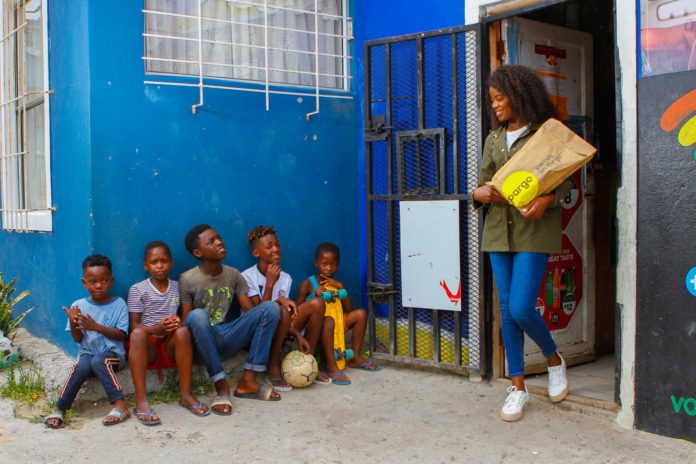SA’s township shoppers are switching paper moola for clever tech, at a fraction of the cost and effort.
Cape Town, – “With greater connectivity becoming available in township communities, we are seeing a huge shift to online shopping as opposed to physical shopping.”
Luvuyo Rani, co-founder and CEO of township technology services provider Silulo Ulutho Technologies, is understandably excited.
Rani and brother Lonwabo Rani founded Silulo Ulutho Technologies in Komani (Queenstown) in 2004 as a one-stop business and careers centre offering digital training and business, internet and printing services to township and rural communities.
The former teacher started the business in response to the Department of Education’s introduction of Outcomes Based Education, which required educators to use computers to capture learners’ marks. The need for computer literacy in broader township communities quickly became apparent, and so Silulo Ulutho Technologies was born.
Today, the company services 43 branches in townships and rural areas in the Western Cape, Eastern Cape and KwaZulu-Natal, employing 200 full-time staff and boasting 18 franchisees. Rani has picked up a host of accolades along the way, including being named one of the JCI Ten Outstanding Young Persons of the World in the category of business, economics and/or entrepreneurial accomplishment, and the Schwab Foundation Social Entrepreneur of the Year in 2016.
To see greater internet penetration and ecommerce in South Africa’s townships is exactly what he set out to achieve, believing that for South Africa to succeed, there needs to be a bridging of the digital divide between privileged and poorer communities.
Indeed, the 2022 South African Township CX Report released in June found that 70% of the 1,400 people surveyed made a purchase online in the past year. In the inaugural 2021 report, that percentage stood at just 28%, emphasising the “huge shift” Rani refers to.
One of the biggest contributing factors to online shopping is cheaper data prices offered by major internet service providers in the last 12 months.
While cash is still king in townships, with bank cards following behind, mobile payments are beginning to win people over, the report states.
Some residents don’t have smartphones that support mobile payments, but telecommunications companies are turning to WhatsApp, used by 95% of the country’s internet users, to provide payment alternatives.
Without a doubt, the uptake of ecommerce offerings was propelled by the Covid-19 pandemic as more people bought fast food, clothing, devices and accessories during lockdown.
Having witnessed the trend, Silulo Ulutho Technologies recently partnered with Pargo, a smart logistics platform that simplifies online delivery through its tech-enabled network of Pargo access points, to serve as an official pickup point.
With Pargo’s Click & Collect offering, there’s no need to wait for couriers or deal with the uncertainty of when a delivery will take place; you can simply collect from a pickup point when you’re ready.
“This delivery method with over 300 pickup points in informal settlements nationwide is particularly popular among the many South Africans who live in areas where they might not have convenient access to home delivery”, says Pargo co-founder and CEO Lars Veul.
Rani says from the growth in the number of parcels being picked up at Silulo branches using the Pargo system, it’s clear that township SMMEs and customers are embracing ecommerce technology.
“The Pargo service means people can collect their parcels within walking distance, which is a huge benefit. Couriers often battle to deliver items because of crime in the townships.”
It also counters the inefficiencies in geo-location apps that might not pick up specific areas in townships or even if there is a petrol station close by. It can mean that packages don’t reach the destination on time, or even at all.
Veul expects Click & Collect to become even more popular as people become more comfortable with online shopping.












